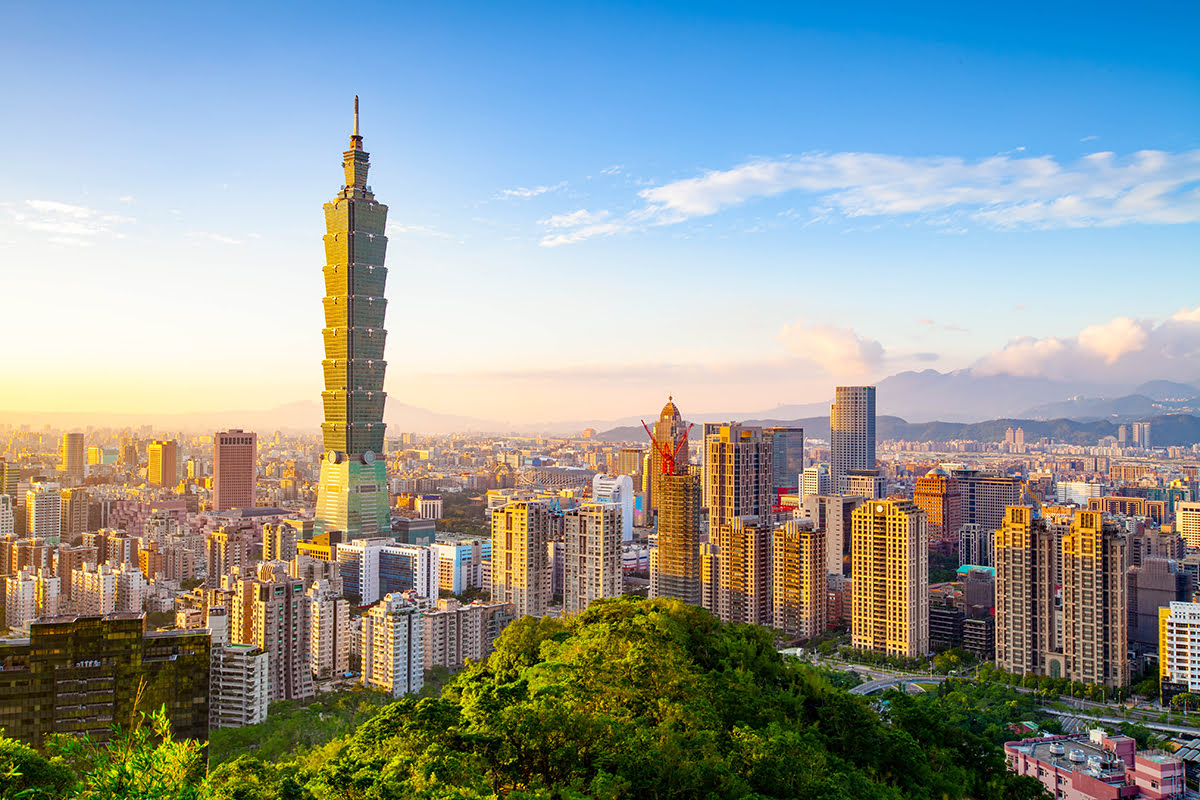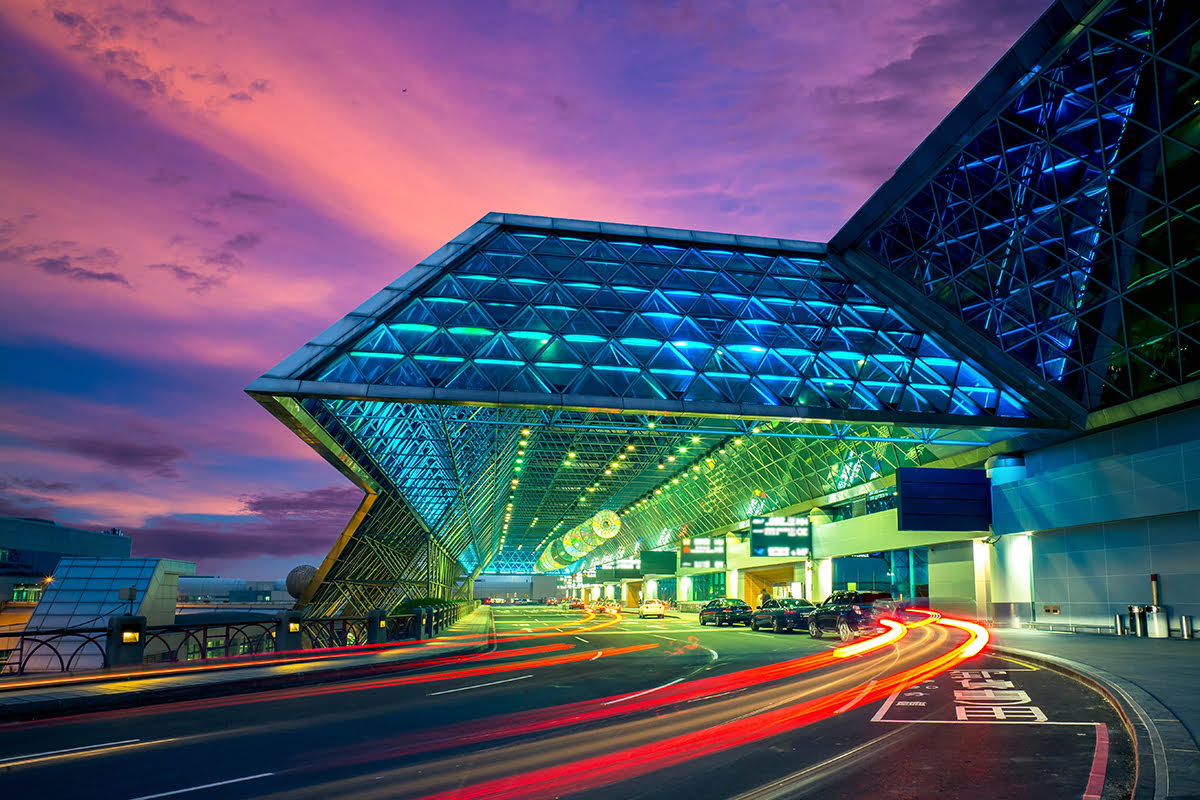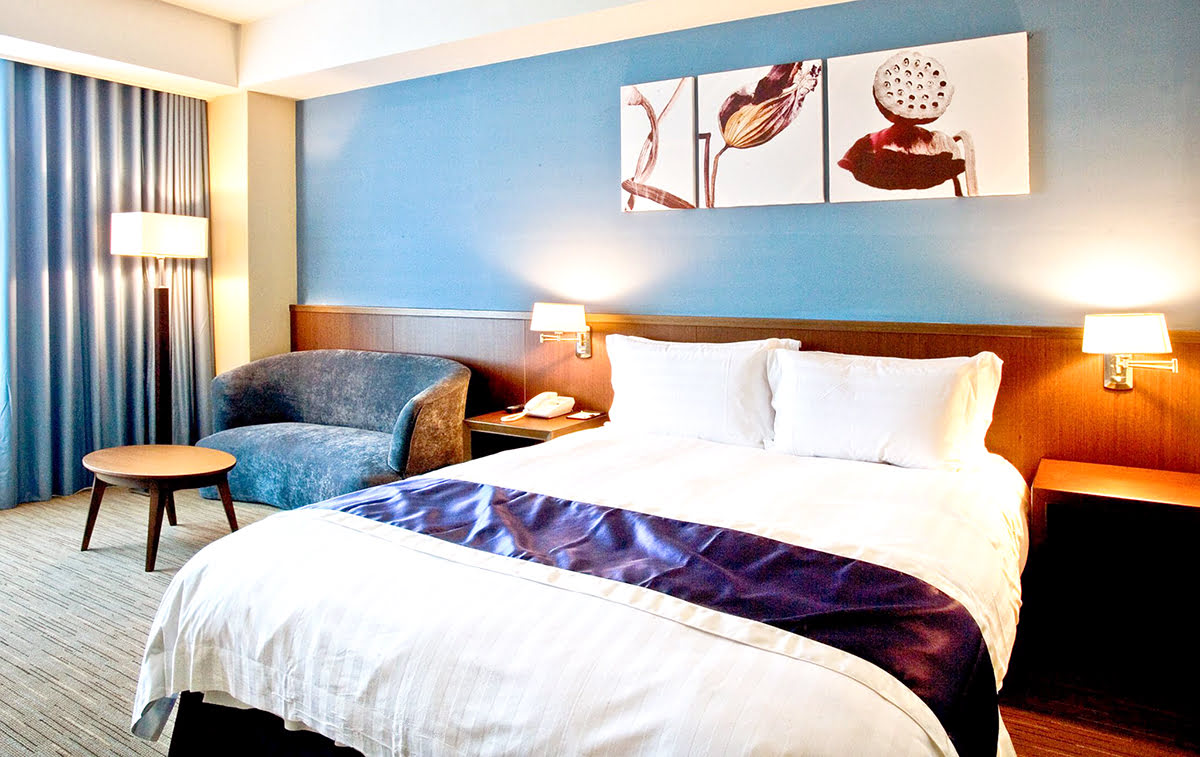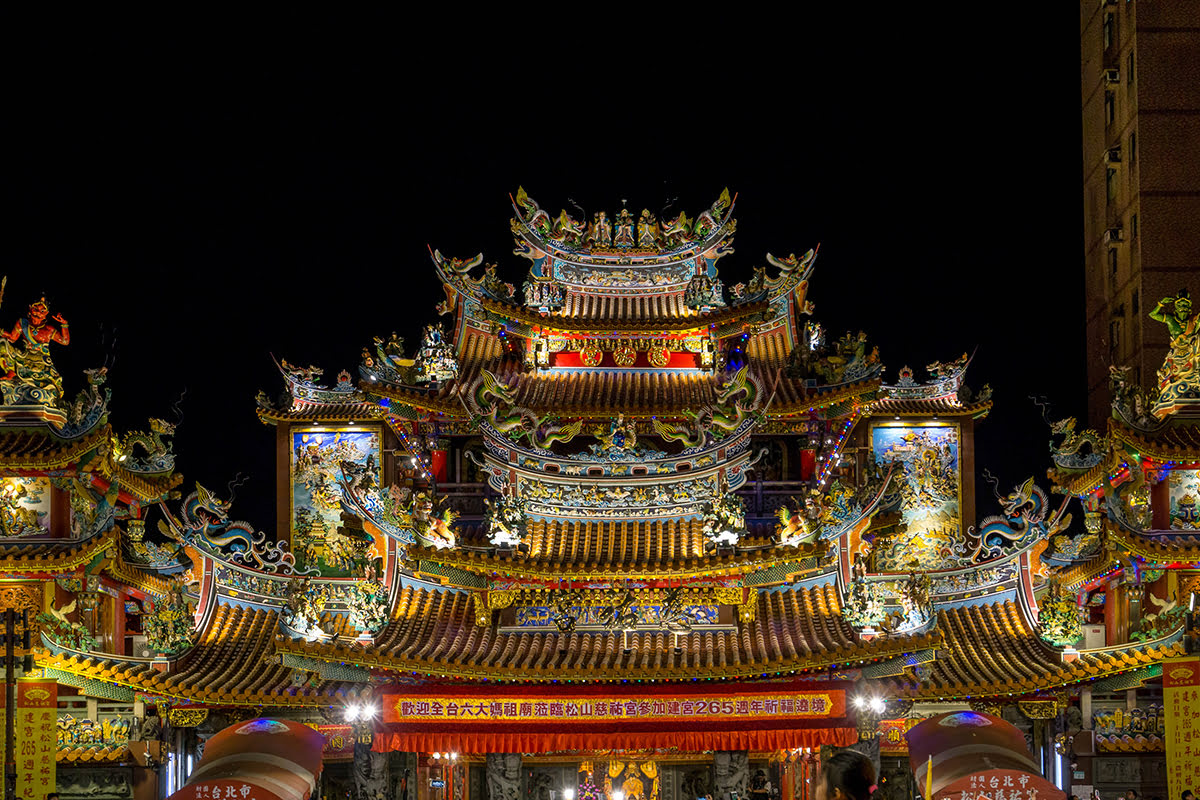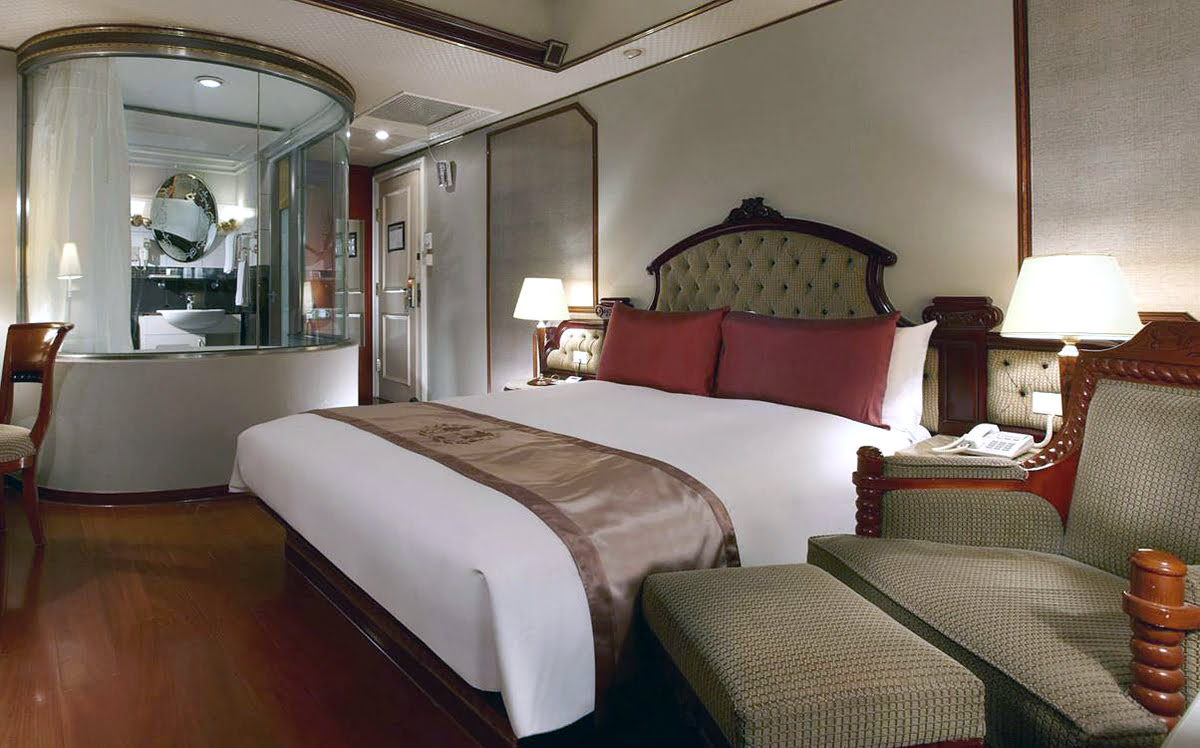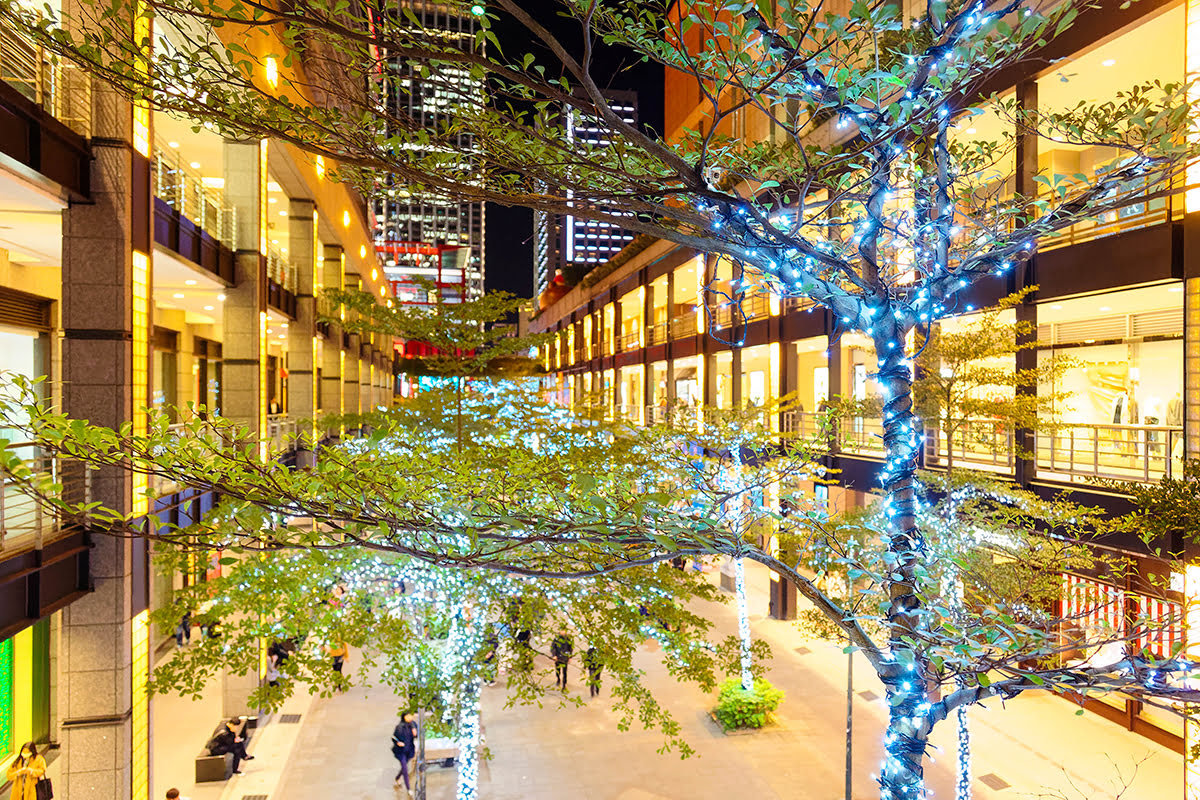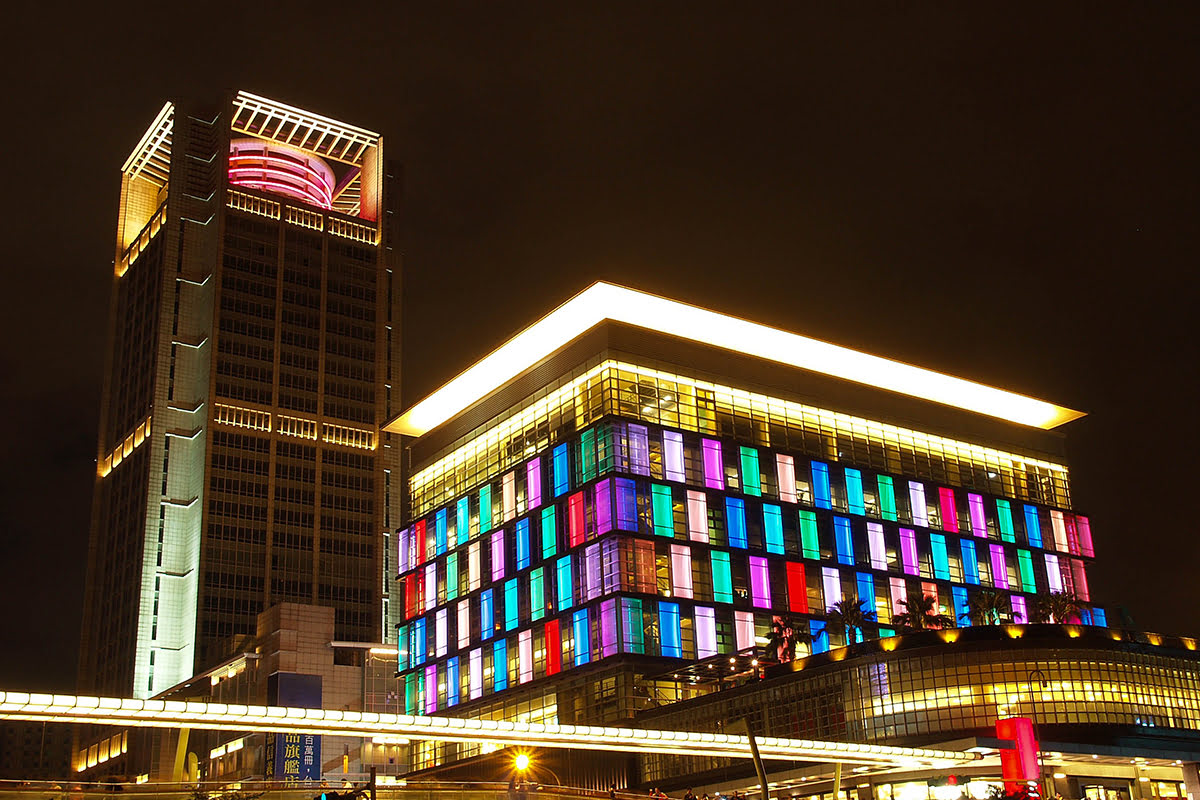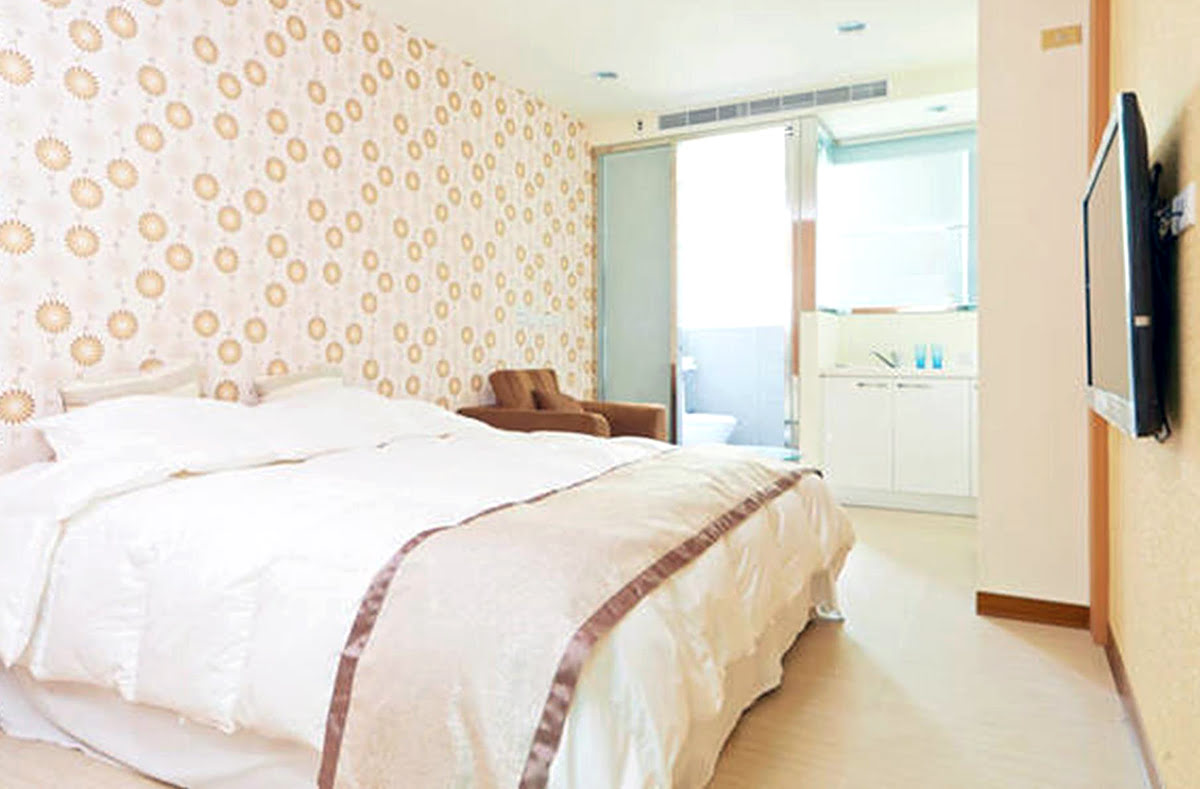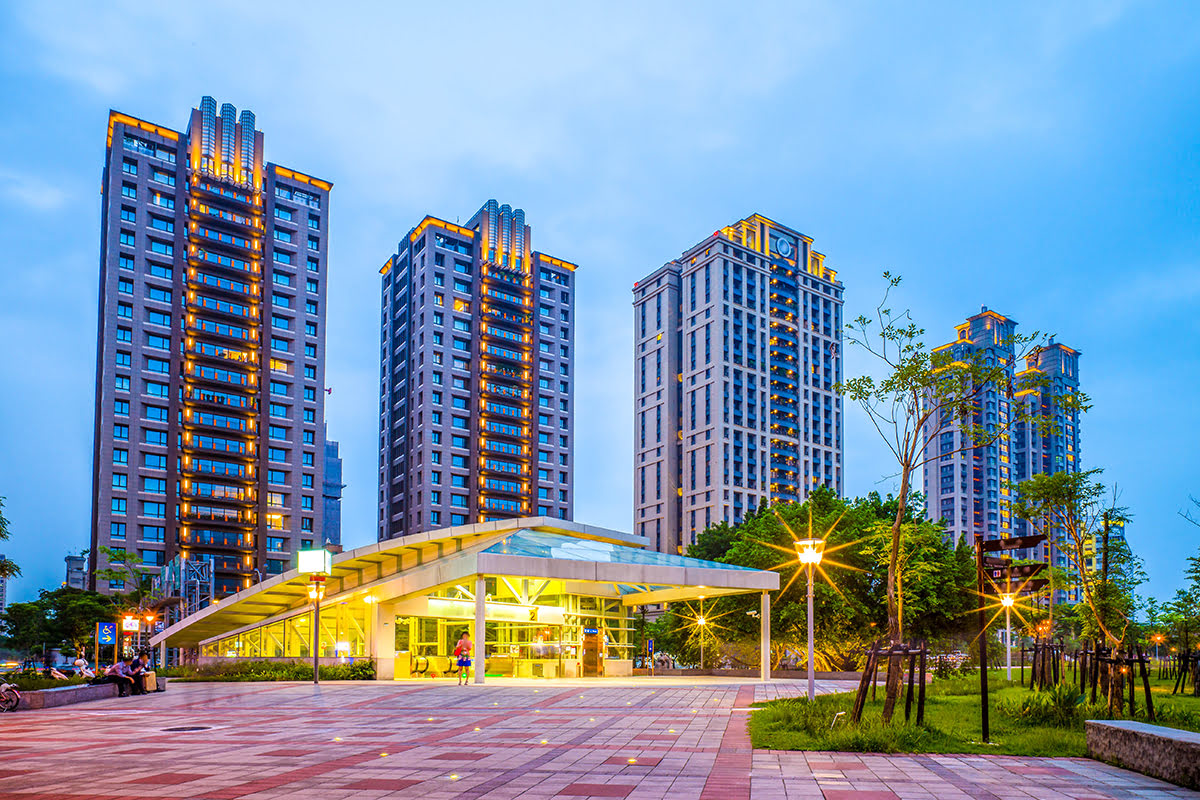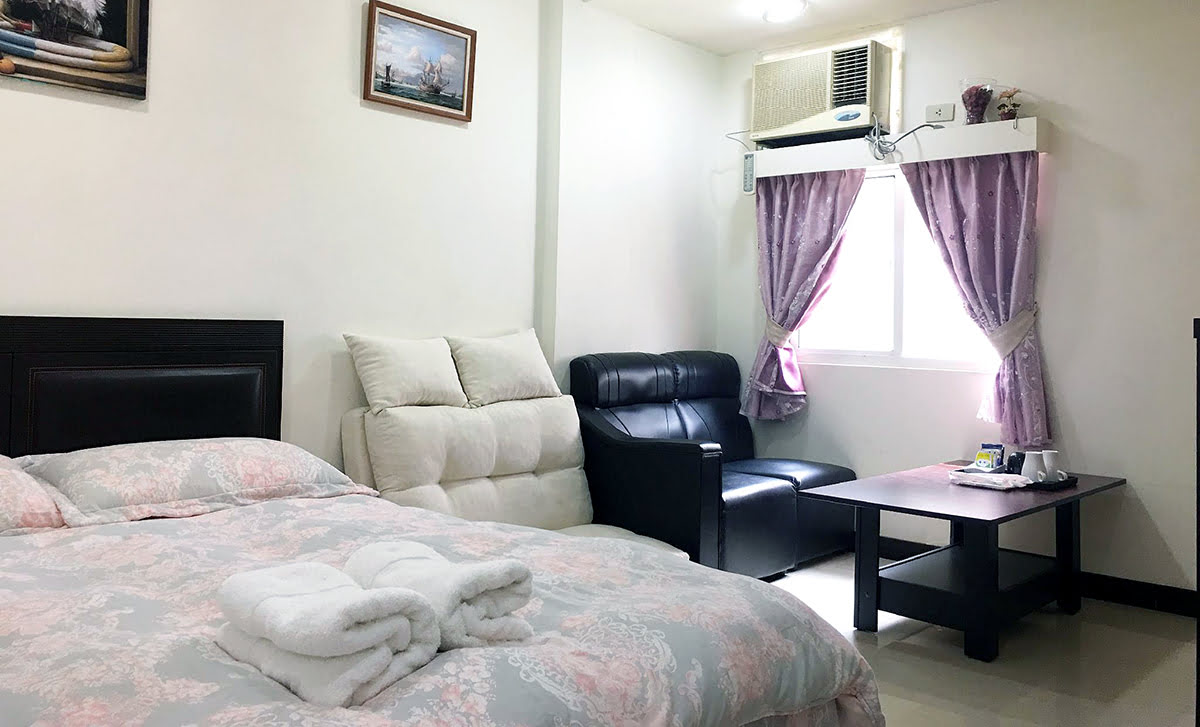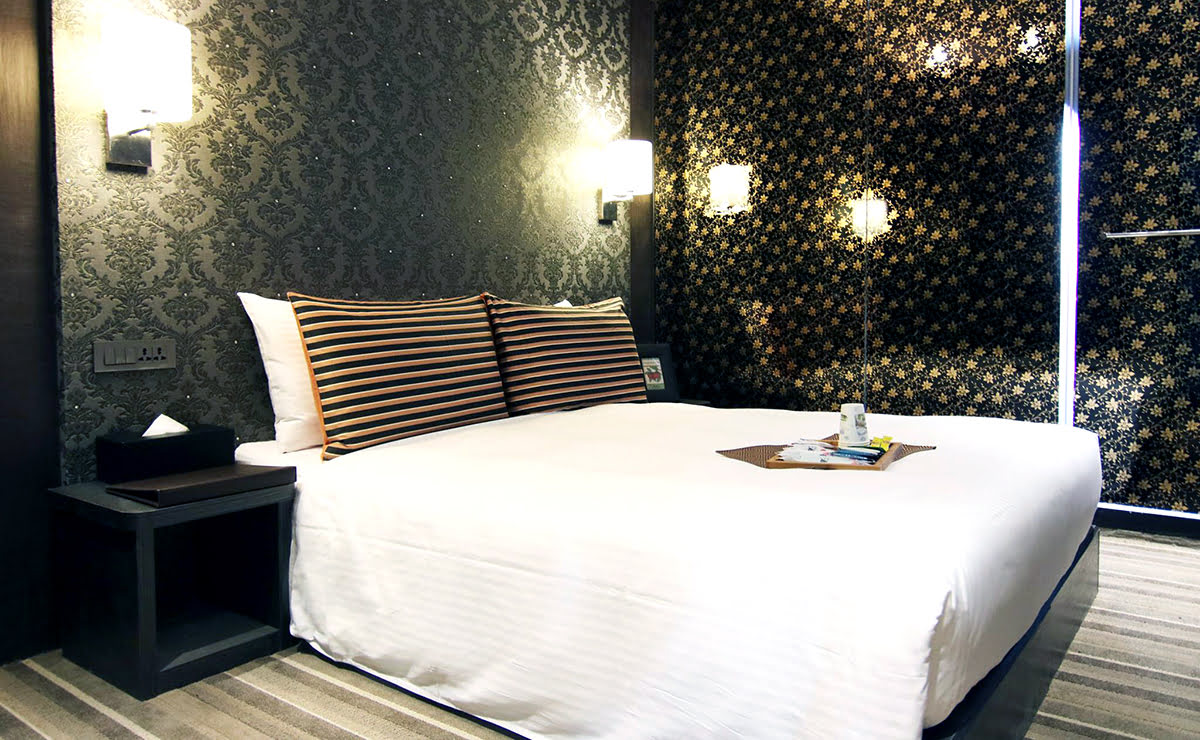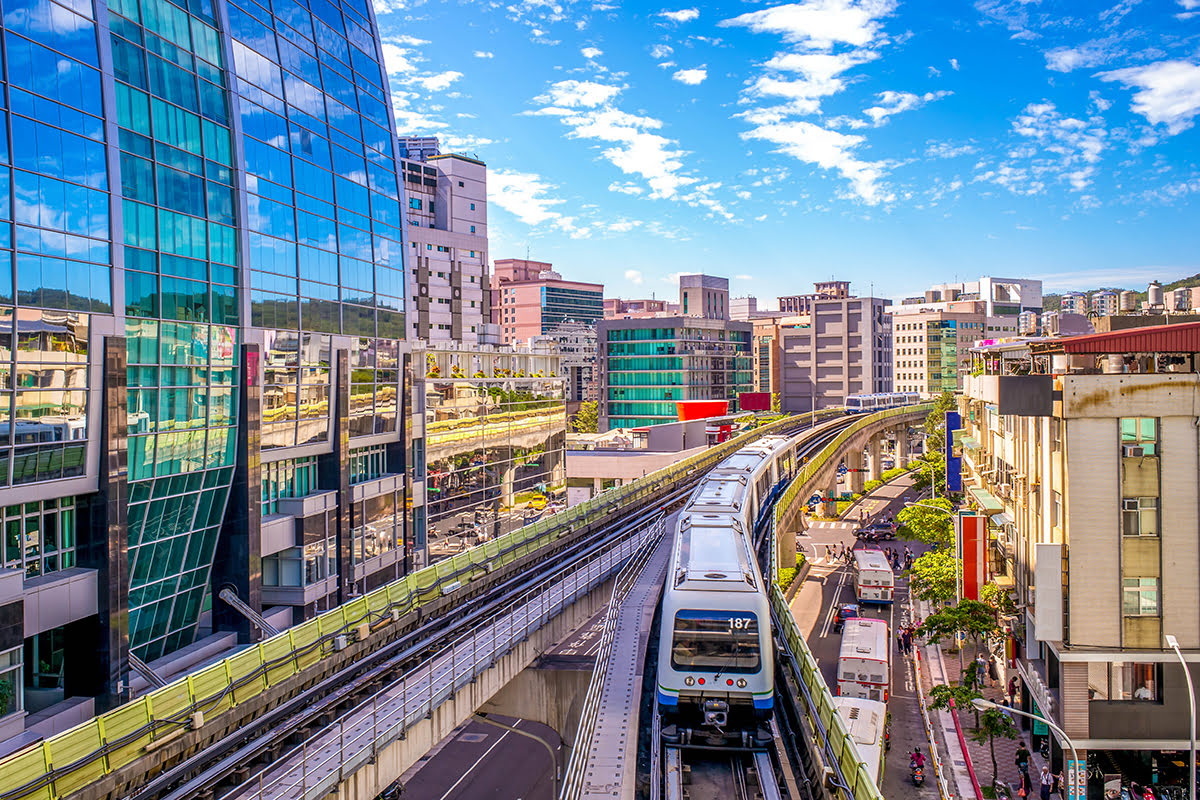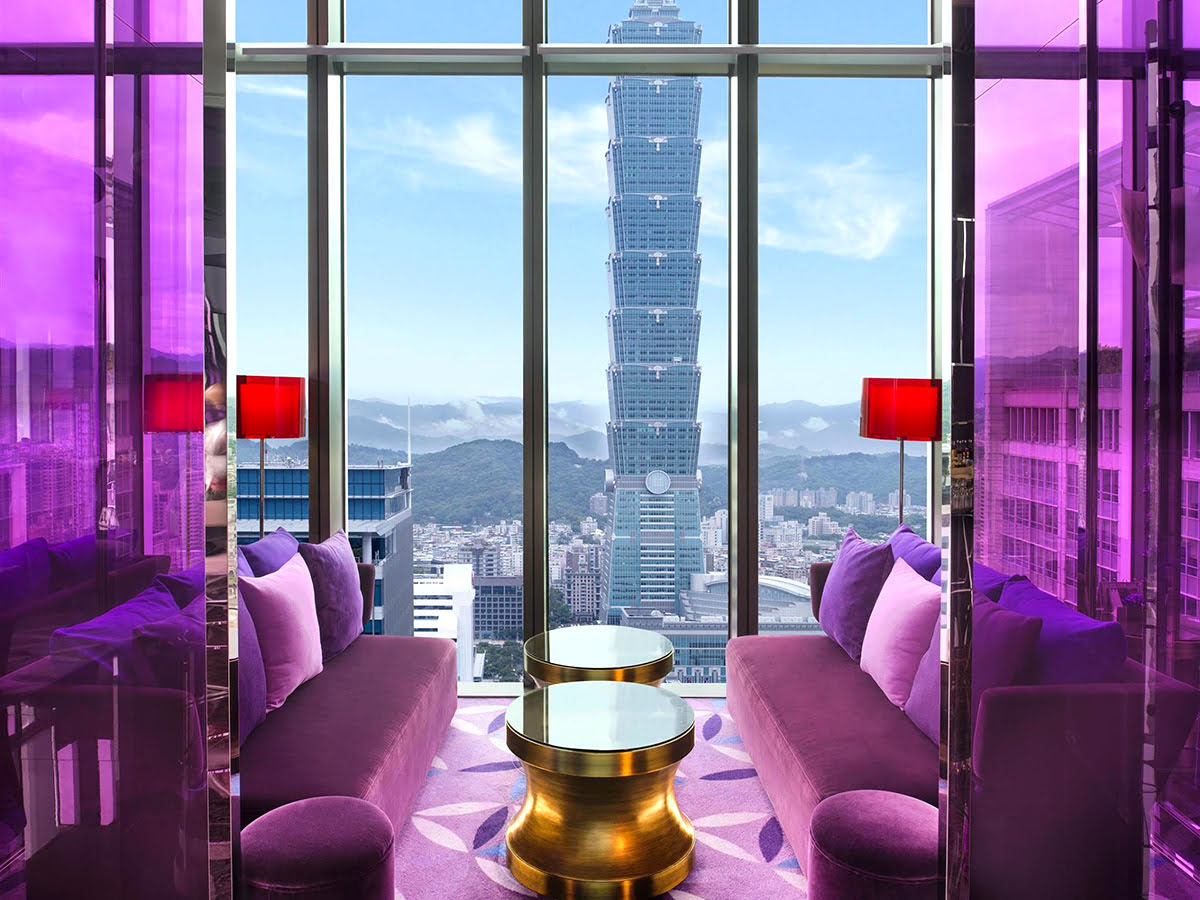Taipei Travel Tips | Pro Advice for Traveling in Taiwan

It never hurts to have a few Taipei travel tips under your belt before traveling to Taiwan’s capital city. Taipei offers a wealth of remarkable activities and encounters at every turn. Take advice from the pros to plan a trip to Taipei, one of Asia’s most dynamic cities!
Getting There: Taiwan Passport Requirements
Taiwan requires travelers to have a valid passport before entering the country. Passports must be valid for at least six months for most passport-holders. Japanese travelers are an exception to the rule, however, as a Japan passport only needs to be valid for three months.
In addition to a valid passport, Taiwan requires proof of a travel itinerary, such as a flight reservation. They do this to ensure you’re not planning on staying in the country longer for an extended period, which means 14 to 90 days, depending on your visa. You must also not have any criminal record in Taiwan prior to your arrival. Citizens from Hong Kong and Macau must apply for an Exit & Entry Permit instead of using a passport.
*Visit the Taiwan Bureau of Consular Affairs for updated visa and tourist information.
Flying into Taipei | Taoyuan International Airport (TPE) & Taipei Songshan Airport (TSA)
Taoyuan International Airport stands about 25 miles west of Taipei. As its name implies, it’s where the international flights land, which makes it the airport that most travelers touch down. It’s Taiwan’s largest airport and is considered one of the world’s ten busiest.
You’ll find Taipei Songshan Airport (TSA) in the middle of the city – specifically, in the Songshan District. It’s a military and mid-sized commercial airport and handles domestic destinations as well as a handful of relatively nearby international cities, such as Tokyo and Seoul. A few Chinese cities also use this airport for international flights.
Check In to Hotel Orchard Park
Step Out to Taoyuan International Airport
Taipei Travel Tips | Taipei Population
Taipei‘s a city that’s packed with people. The city’s estimated population is around 2.7 million; when you include the area surrounding the city proper, this number balloons to 7.4 million. Some of the city’s districts, such as the Da’an and Songshan districts, are among the most densely populated neighborhoods in the world.
Some of these jam-packed neighborhoods are also home to some of Taipei’s most popular attractions, such as the Da’an District’s Tonghua Night Market or the Songshan Ciyou Temple in the Songshan district. It’s wise to come to Taipei prepared to deal with crowds.
Check In to Charming City Hotel SungShan
Step Out to Songshan Ciyou Temple
Taipei Travel Tips | Currency & Taipei Money
Taiwan’s currency is the New Taiwan Dollar, commonly abbreviated as NT$. The money comes in the form of colorful paper currency and coins, and each type features five denominations. The paper money denominations are as follows:
- NT$2,000
- NT$1,000
- NT$500
- NT$200
- NT$100
Coin denominations are as follows:
- NT$50
- NT$20
- NT$10
- NT$5
- NT$1
It’s relatively easy to exchange your money for New Taiwan Dollars, as hotels and government-designated banks can make these essential conversions. You’ll be given receipts when you exchange your currency. It’s crucial that you hang on to them – you won’t be able to convert your leftover New Taiwan Dollars back to your domestic currency without them when you leave Taipei.
Most attractions and points of interest take credit cards such as Master Card, Visa, and American Express. You may find this to be your preferred payment method if you plan on doing any fine dining, which can be a bit pricey. With that being said, street market vendors – particularly street food vendors – tend to be cash only affairs. If you plan on hitting these markets – and you should – make sure you have some money on your person. Fortunately, there are plenty of ATMs throughout the city, and they will produce cash from your bank in the form of New Taiwan Dollars.
Taipei Travel Tips | Shopping Tax Refunds
If you’re visiting Taipei, you may be eligible to receive partial tax refunds on purchased goods. Participating shops offer a 5 percent tax refund on items bought on the same day you’re leaving Taipei. These shops are designated Tax Refund Shopping (TRS) shops, and only foreign travelers are eligible for these refunds. To qualify, your total purchase needs to exceed NT$2,000.
If you plan on doing some shopping at Shin Kong Mitsukoshi Mall in the Xinyi District, you could be eligible to receive a 5% tax refund on aggregate purchases between NT$3,000 and NT$20,000. These special breaks are handled onsite at the property’s foreign exchange desk.
*Visit the Taiwan Taxation Administration, Ministry of Finance for updated shopping tax information.
Taipei Travel Tips | Tipping in Taipei
Taipei‘s tipping rules may be vastly different than what you may be used to at home. For instance, tipping at restaurants is typically unnecessary, because they add a 10 to 15 percent service charge to your bill. This approach is relatively widespread in Europe, but American travelers may not be used to this procedure. However, it doesn’t hurt to ask to make sure there’s a service charge in place. If for some reason there isn’t, you should leave a tip amount comparable to a typical service charge.
Tipping taxi drivers is also not expected. If you give them an amount of money that’s over the fare, they’ll give you your change back without an issue. They’ll only keep it if you let them know it’s okay.
When you arrive at your hotel, you should anticipate tipping the porter or bellman. The baseline here is NT$100, but you should expect to bump this up if you’re staying at a luxury property. You can leave a tip if you’re impressed with the job performed by your hotel’s housekeeper, but you may want to consider leaving a small gift for them instead, as small gifts are a big deal in Taiwanese culture.
It’s customary to tip any individual involved with large-scale health and beauty, such as a spa therapist or a hairdresser. The going rate here is around 10% of your total bill. It’s okay to skip the tip if you feel they did a poor job, as long as you let someone in charge know why you decided to forgo the extra gesture.
Finally, if you’re planning on taking a tour, it’s customary to leave your tour guide either a 10% tip or a small gift. It’s also common practice to leave either a 5% tip or a small gift to the tour’s driver if they are not the ones conducting the tour.
Check In to Parkview 101
Step Out to Xinyi
Taipei Travel Tips | Internet Access
Taipei is a city wired for technology, which is good news for those visiting the city. Most hotels, cafes, and restaurants offer free Wi-Fi, as do select shopping malls.
The Taiwanese government offers free Wi-Fi for when you’re out and about. This service, called iTaiwan, features several hotspots around Taipei. These are typically located near major points of interest such as TAIPEI 101, transportation hubs like Xiangshan Metro Station, or government buildings. In order to access the service, you must initially sign up for usage at one of Taipei’s twelve Visitor Information Centers, which are scattered about various areas throughout the city. Be forewarned: iTaiwan’s service tends to be slow and inconsistent, so adjust your expectations accordingly.
Check In to Taipei 101 Station Guesthouse
Step Out to Taipei 101
Taipei Travel Tips | Customs and Etiquette
As is the case with any city, there are a lot of behavioral dos and don’ts when it comes to visiting Taipei. It’s important to take these various customs seriously. Doing so automatically shows respect to the city you’re visiting. It also makes you look less like a tourist and more like a traveler, and there is a big difference between the two terms.
Food and Drink
Chopsticks are used with every dish except rice bowls, which are eaten with a spoon. Never use your own chopsticks to take food from shared plates – always use the pair that comes with the dish. Above all else, don’t stick your chopsticks into a bowl vertically. This is a major taboo that will likely earn you a nasty glare or two.
Body Language
The Taiwanese are humble, respectful people that traditionally do not care for any type of behavior that may come across as overtly demonstrative or loud. Gestures that may be routine to you, such as pointing with your index finger or a casual touch of the shoulder, is considered very rude and will be treated as such. Touching anyone on the top of their head is a particularly egregious maneuver, especially if it’s done to a baby. Also, you should refrain from kissing your significant other when you’re out on the town. Public displays of affection are considered unacceptable behavior.
Other Traditions and Customs
If you end up getting invited to someone’s house, always remove your shoes upon entry, and always show up with a host gift. Any small gift will suffice except clocks, as the Manadarin phrase “to give a clock” sounds too much like the phrase “to attend a funeral.” When you’re in your hotel, don’t be surprised if you don’t see a fourth floor – the number four sounds like the word meaning “to die,” so it’s treated in a way that matches how the number 13 is treated in some countries. Also, anything said that implies disaster or death is strongly frowned upon, so you should heed advice to keep any semblance of dark humor in check.
Taipei Travel Tips | Weather
Taipei‘s daytime temperatures range from the low 60s (F) in the winter to the mid-80s during the summer months. There’s not much of a drop in temperatures during the night; the average decline is just four to five degrees. However, the city’s in a subtropical climate zone, thanks in part to its proximity to the Tropic of Cancer and the influence of monsoons. This causes the weather to be humid year-round. While you may need a jacket to keep you dry – it rains here about 165 days every year – it’s advisable to keep your clothing light and loose-fitting, especially if you’re travelling here during typhoon season.
The most comfortable time of the year to travel to Taipei is November through April, which makes it the best time on the calendar to visit the city. While the humidity won’t dip much, the temperatures are lower. Fortunately, popular events like Chinese New Year and the Lantern Festival happen during this stretch, as does cherry blossom season. The rains particularly drench the city during May and June, and you can expect relatively quick afternoon thundershowers to roll over the city’s landscape the rest of the summer.
Regardless of when you travel, you should always pack a reliable travel umbrella and a rain jacket. Rain is simply a way of life here, and the skies could open up at seemingly a moment’s notice because of the tropical influence. It’s best to be prepared.
Check In to Moshamanla-Main Station
Step Out to Taipei Station
Taipei Travel Tips | Transportation
The main method of transportation you’ll most likely use to get around Taipei is the city’s Mass Rapid Transit (MRT). It’s the largest subway system in Taiwan, and it’s certainly the busiest, as around 2 million people ride its rails every day. Despite this mass of humanity, the MRT has a strong reputation for being clean.
The MRT’s signage is in English and Chinese, so there’s not much of a language barrier to worry about. One thing that may be confusing to first-time Taipei travelers is the names of the subway lines themselves. Unlike other subway systems in the world that may use letters, numbers, or colors to differentiate between lines, the MRT almost always references their lines by their respective terminal station. However, each line does come with its own color; if you’re a savvy tourist, you may commit these terminals and their associative lines to memory.
The lines that make up the MRT are:
- Wenhu Line (Brown)
- Tamsui-Xinyi Line (Red)
- Songshan-Xindian Line (Green)
- Zhonghe-Xinlu Line (Orange)
- Bannan Line (Blue)
There is also a direct subway route that connects to the Taoyuan Airport, although this is not technically considered to be part of the MRT. Because there are stations spread all throughout Taipei, it’s relatively easy to transfer between lines.
Tickets to ride can be purchased at the stations via automatic ticket machines or at a ticket counter. You can expect to pay around NT$20 and NT$65 for a ride. If you plan on doing a lot of subway travel, consider paying NT$150 for a one-day pass, which allows you to ride the system as much as you’d like on the day the pass was purchased.
Smoking is prohibited in each MRT station. Additionally, the system does not allow food, drinks, or chewing gum on their trains.
Check In to W Taipei
Step Out to Xiangshan Metro Station
Taipei Travel Tips | How Long Should I Stay?
If you look at a map, you’ll probably notice that Taipei is a sprawling city. However, most of the city’s essential points of interest such as TAIPEI 101, the Xinyi Shopping District , and Liberty Square are concentrated toward the city center. Other key attractions outside this bubble like Fort San Domingo are relatively accessible through the MRT.
Because Taipei’s points of interest are so close together, you could put together a full and satisfying itinerary in four or five days. Such a length would provide you ample time to explore a healthy mix of historic landmarks, modern attractions, and bustling markets. You may even have some time to sneak in some choice shopping.
Taipei Travel Tips | How Much Should I Plan to Spend?
The amount of money you’ll spend when you’re visiting Taipei will depend on your exchange rate. However, you should prepare yourself and your wallet – Taipei does have a reputation for being one of the most expensive cities in Asia. In terms of New Taiwan Dollars, you can expect to shell out anywhere between NT$2,500 and NT$5,000 per day depending on your tastes. The low end of this price range gets you a room in a hotel, food at mid-range restaurants, a cocktail at a nice bar, and a perk like a trip to a sauna.
Keep in mind that some of the points of interest you may want to visit, such as temples, may offer free admission. Plus, you may be able to save extra money if you swap out meals at sit-down restaurants with the street food options you may encounter while dropping by one of the city’s numerous markets – an activity that may be on your itinerary already. Plus, if you’re worried about blowing through your currency on your trip, keep in mind that most hotels and mid- to high-end restaurants accept credit cards, not to mention that ATMs are spread all over town.
Other Tips
Hopefully, you will not experience an injury, incident, or anything else that constitutes an emergency during your Taipei visit. However, you may wish to keep the following numbers handy if you should a crisis arrive:
- Fire or Ambulance – 119
- Police – 110
These emergency services are free to use in Taipei.
There are also a few other three-digit numbers that you can use to obtain specific information or services:
You may also like
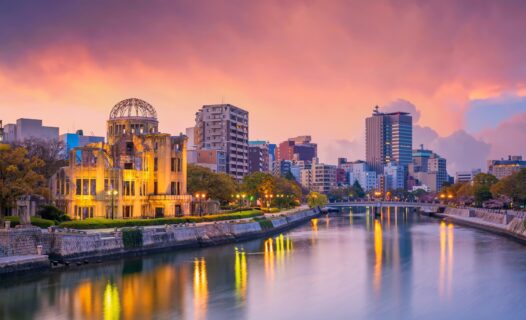
Discover Hiroshima through a 3-day itinerary: from Peace Memorial Park to Miyajima Island's serenity. Embark on a journey of peace, resilience, and beauty.
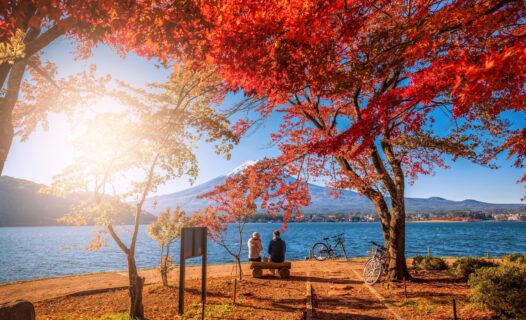
Unlock the serene beauty of Fujikawaguchiko with our 3-day itinerary guide. Explore majestic Mt. Fuji, cultural gems, and soothing onsens.
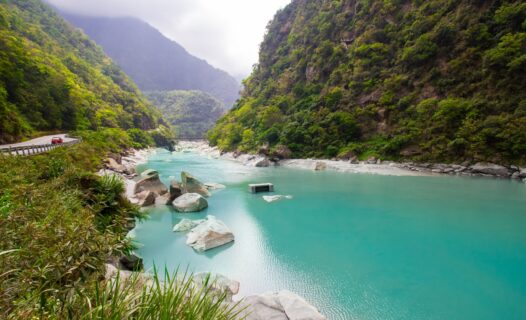
Embark on a captivating 3-day journey through Hualien, Taiwan. Explore Taroko Gorge, indulge in local cuisine, and uncover hidden gems with our comprehensive itinerary.
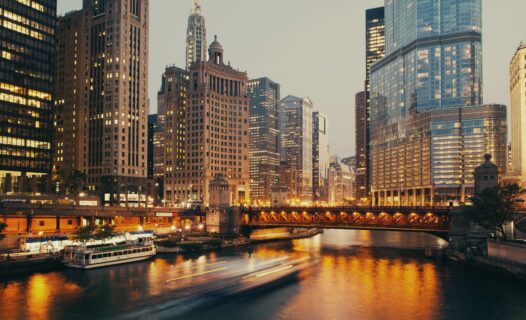
Embark on a captivating 3-day journey through Chicago, discovering the city's skyscrapers, cultural gems, and culinary delights.

Dive into a perfect weekend in Boracay Island with our tailored itinerary. Discover pristine beaches, vibrant nightlife, and culinary delights.
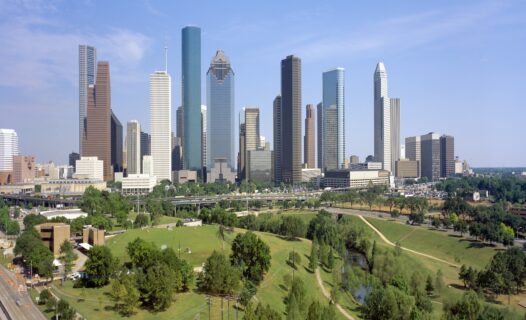
Discover the best of Space City with our ultimate 5-day Houston itinerary. From space centers to culinary delights, explore parks, museums, and markets.

Embark on a captivating 3-day journey through Rome's ancient glory and modern charm. Discover history, art, and culinary delights in the Eternal City.

Explore Barcelona in a weekend with our curated itinerary. Uncover Gaudí's masterpieces, savor Catalan cuisine, and bask in the city's vibrant culture.
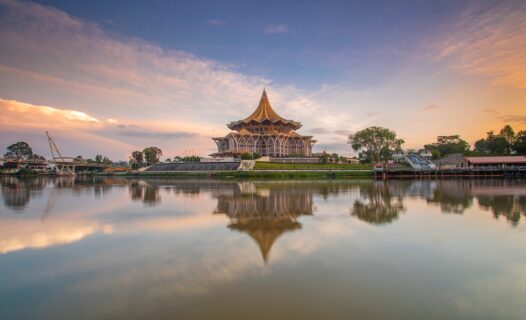
Dive into our Kuching weekend itinerary for top attractions & eats. Discover hidden gems, cultural wonders, and tantalizing food in the heart of Borneo.
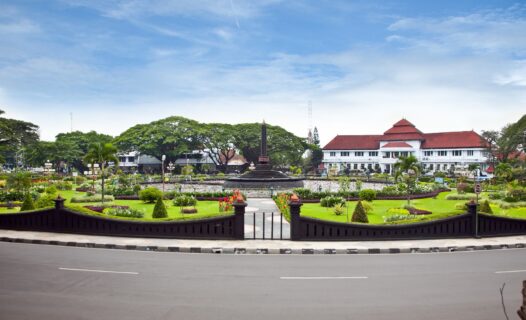
Embark on a 7-day journey through Malang, exploring breathtaking landscapes, rich culture, and hidden gems. From sunrise at Mount Bromo to traditional Javanese wellness, our itinerary guides you through unforgettable experiences.
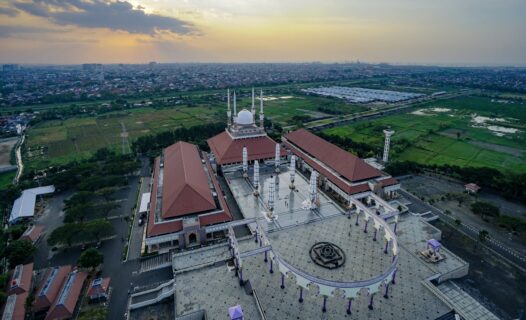
Embark on a 7-day adventure in Semarang, Central Java's coastal charm! From historical marvels like Lawang Sewu to scenic Rawa Pening, our guide unveils must-see spots, local cuisine, and secret gems.
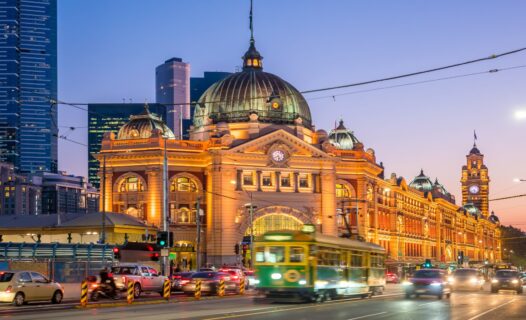
Uncover the best of Melbourne in 7 days with our comprehensive itinerary. From cultural landmarks and lush parks to riverside wonders and culinary delights, get ready to explore the vibrant heart of Australia.
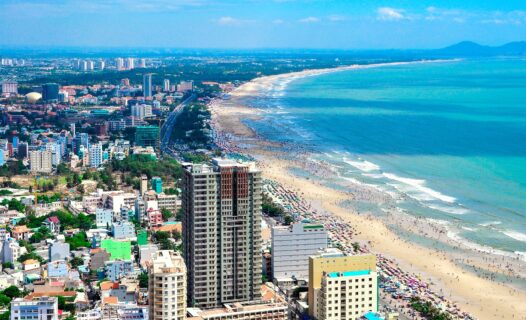
Dive into our Vung Tau Weekend Getaway Itinerary for an unbeatable blend of sandy beaches, historic landmarks, and culinary delights. Start planning your dream coastal escape with Agoda and unlock the secrets of Vung Tau’s charm.
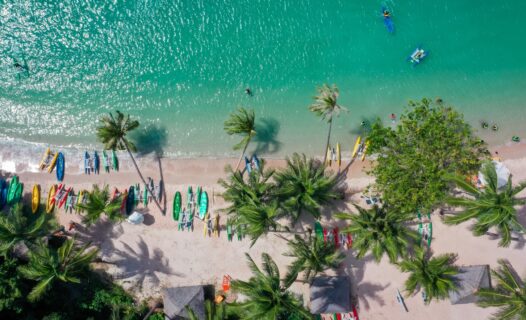
Uncover the ultimate family getaway in Batam Island with our 5-day itinerary! From beach fun to cultural tours, adventure parks, and delicious cuisine, discover activities that appeal to all ages.
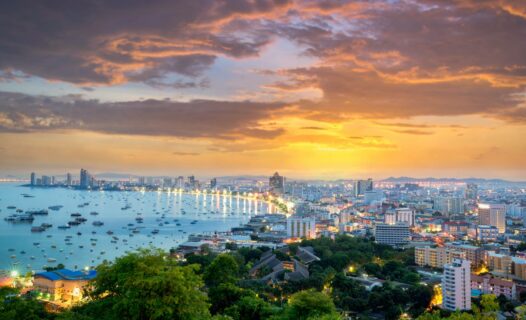
Unlock the best of Chonburi in just 3 days! From serene beaches to captivating culture and natural wonders, our comprehensive itinerary guides you through unforgettable experiences.
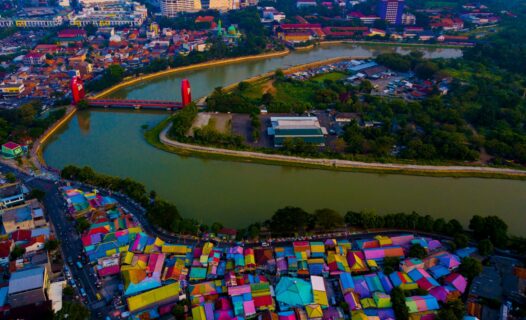
Embark on a weekend escape to Tangerang and unveil a blend of rich culture, modern attractions, and lush nature.
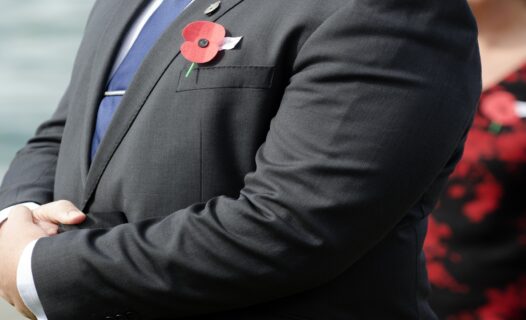
Discover how to honor Anzac Day 2024 in New Zealand with our guide, from dawn services to cultural insights. Embrace the spirit of remembrance and respect.
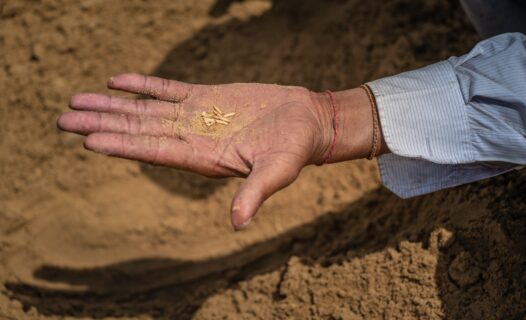
Explore the Royal Ploughing Ceremony 2024 in Phnom Penh with our comprehensive guide. Discover the rituals, traditions, and tips for experiencing Cambodia's agricultural heritage.
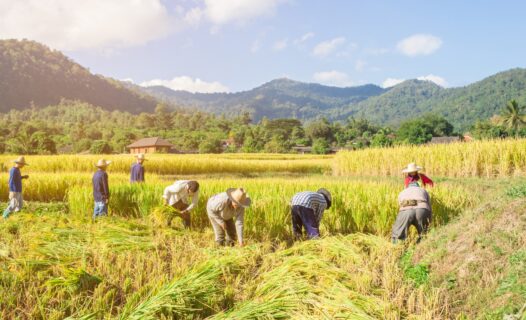
Join us as we explore the Royal Ploughing Ceremony, a cornerstone of Thai culture symbolizing the start of the planting season. Experience the beauty and rituals that make this event a must-see for cultural enthusiasts and travelers alike.
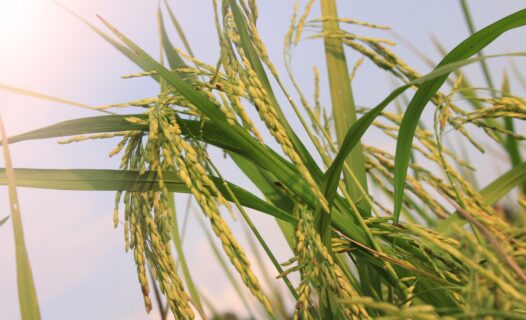
Discover the Royal Ploughing Ceremony in Bangkok, 2024. Immerse in Thailand's rich culture, explore culinary delights, and find the best places to stay. A comprehensive guide for the perfect journey.

Dive into Seoul's Children's Day 2024 with our family guide! Discover interactive museums, lush parks, and rich cultural experiences perfect for creating lasting memories.

It never hurts to have a few Taipei travel tips under your belt before traveling to Taiwan’s capital city. Taipei offers a wealth of remarkable activities and encounters at every turn. Take advice from the pros to plan a trip to Taipei, one of Asia’s most dynamic cities!
Getting There: Taiwan Passport Requirements
Taiwan requires travelers to have a valid passport before entering the country. Passports must be valid for at least six months for most passport-holders. Japanese travelers are an exception to the rule, however, as a Japan passport only needs to be valid for three months.
In addition to a valid passport, Taiwan requires proof of a travel itinerary, such as a flight reservation. They do this to ensure you’re not planning on staying in the country longer for an extended period, which means 14 to 90 days, depending on your visa. You must also not have any criminal record in Taiwan prior to your arrival. Citizens from Hong Kong and Macau must apply for an Exit & Entry Permit instead of using a passport.
*Visit the Taiwan Bureau of Consular Affairs for updated visa and tourist information.
Flying into Taipei | Taoyuan International Airport (TPE) & Taipei Songshan Airport (TSA)
Taoyuan International Airport stands about 25 miles west of Taipei. As its name implies, it’s where the international flights land, which makes it the airport that most travelers touch down. It’s Taiwan’s largest airport and is considered one of the world’s ten busiest.
You’ll find Taipei Songshan Airport (TSA) in the middle of the city – specifically, in the Songshan District. It’s a military and mid-sized commercial airport and handles domestic destinations as well as a handful of relatively nearby international cities, such as Tokyo and Seoul. A few Chinese cities also use this airport for international flights.
Check In to Hotel Orchard Park
Step Out to Taoyuan International Airport
Taipei Travel Tips | Taipei Population
Taipei‘s a city that’s packed with people. The city’s estimated population is around 2.7 million; when you include the area surrounding the city proper, this number balloons to 7.4 million. Some of the city’s districts, such as the Da’an and Songshan districts, are among the most densely populated neighborhoods in the world.
Some of these jam-packed neighborhoods are also home to some of Taipei’s most popular attractions, such as the Da’an District’s Tonghua Night Market or the Songshan Ciyou Temple in the Songshan district. It’s wise to come to Taipei prepared to deal with crowds.
Check In to Charming City Hotel SungShan
Step Out to Songshan Ciyou Temple
Taipei Travel Tips | Currency & Taipei Money
Taiwan’s currency is the New Taiwan Dollar, commonly abbreviated as NT$. The money comes in the form of colorful paper currency and coins, and each type features five denominations. The paper money denominations are as follows:
- NT$2,000
- NT$1,000
- NT$500
- NT$200
- NT$100
Coin denominations are as follows:
- NT$50
- NT$20
- NT$10
- NT$5
- NT$1
It’s relatively easy to exchange your money for New Taiwan Dollars, as hotels and government-designated banks can make these essential conversions. You’ll be given receipts when you exchange your currency. It’s crucial that you hang on to them – you won’t be able to convert your leftover New Taiwan Dollars back to your domestic currency without them when you leave Taipei.
Most attractions and points of interest take credit cards such as Master Card, Visa, and American Express. You may find this to be your preferred payment method if you plan on doing any fine dining, which can be a bit pricey. With that being said, street market vendors – particularly street food vendors – tend to be cash only affairs. If you plan on hitting these markets – and you should – make sure you have some money on your person. Fortunately, there are plenty of ATMs throughout the city, and they will produce cash from your bank in the form of New Taiwan Dollars.
Taipei Travel Tips | Shopping Tax Refunds
If you’re visiting Taipei, you may be eligible to receive partial tax refunds on purchased goods. Participating shops offer a 5 percent tax refund on items bought on the same day you’re leaving Taipei. These shops are designated Tax Refund Shopping (TRS) shops, and only foreign travelers are eligible for these refunds. To qualify, your total purchase needs to exceed NT$2,000.
If you plan on doing some shopping at Shin Kong Mitsukoshi Mall in the Xinyi District, you could be eligible to receive a 5% tax refund on aggregate purchases between NT$3,000 and NT$20,000. These special breaks are handled onsite at the property’s foreign exchange desk.
*Visit the Taiwan Taxation Administration, Ministry of Finance for updated shopping tax information.
Taipei Travel Tips | Tipping in Taipei
Taipei‘s tipping rules may be vastly different than what you may be used to at home. For instance, tipping at restaurants is typically unnecessary, because they add a 10 to 15 percent service charge to your bill. This approach is relatively widespread in Europe, but American travelers may not be used to this procedure. However, it doesn’t hurt to ask to make sure there’s a service charge in place. If for some reason there isn’t, you should leave a tip amount comparable to a typical service charge.
Tipping taxi drivers is also not expected. If you give them an amount of money that’s over the fare, they’ll give you your change back without an issue. They’ll only keep it if you let them know it’s okay.
When you arrive at your hotel, you should anticipate tipping the porter or bellman. The baseline here is NT$100, but you should expect to bump this up if you’re staying at a luxury property. You can leave a tip if you’re impressed with the job performed by your hotel’s housekeeper, but you may want to consider leaving a small gift for them instead, as small gifts are a big deal in Taiwanese culture.
It’s customary to tip any individual involved with large-scale health and beauty, such as a spa therapist or a hairdresser. The going rate here is around 10% of your total bill. It’s okay to skip the tip if you feel they did a poor job, as long as you let someone in charge know why you decided to forgo the extra gesture.
Finally, if you’re planning on taking a tour, it’s customary to leave your tour guide either a 10% tip or a small gift. It’s also common practice to leave either a 5% tip or a small gift to the tour’s driver if they are not the ones conducting the tour.
Check In to Parkview 101
Step Out to Xinyi
Taipei Travel Tips | Internet Access
Taipei is a city wired for technology, which is good news for those visiting the city. Most hotels, cafes, and restaurants offer free Wi-Fi, as do select shopping malls.
The Taiwanese government offers free Wi-Fi for when you’re out and about. This service, called iTaiwan, features several hotspots around Taipei. These are typically located near major points of interest such as TAIPEI 101, transportation hubs like Xiangshan Metro Station, or government buildings. In order to access the service, you must initially sign up for usage at one of Taipei’s twelve Visitor Information Centers, which are scattered about various areas throughout the city. Be forewarned: iTaiwan’s service tends to be slow and inconsistent, so adjust your expectations accordingly.
Check In to Taipei 101 Station Guesthouse
Step Out to Taipei 101
Taipei Travel Tips | Customs and Etiquette
As is the case with any city, there are a lot of behavioral dos and don’ts when it comes to visiting Taipei. It’s important to take these various customs seriously. Doing so automatically shows respect to the city you’re visiting. It also makes you look less like a tourist and more like a traveler, and there is a big difference between the two terms.
Food and Drink
Chopsticks are used with every dish except rice bowls, which are eaten with a spoon. Never use your own chopsticks to take food from shared plates – always use the pair that comes with the dish. Above all else, don’t stick your chopsticks into a bowl vertically. This is a major taboo that will likely earn you a nasty glare or two.
Body Language
The Taiwanese are humble, respectful people that traditionally do not care for any type of behavior that may come across as overtly demonstrative or loud. Gestures that may be routine to you, such as pointing with your index finger or a casual touch of the shoulder, is considered very rude and will be treated as such. Touching anyone on the top of their head is a particularly egregious maneuver, especially if it’s done to a baby. Also, you should refrain from kissing your significant other when you’re out on the town. Public displays of affection are considered unacceptable behavior.
Other Traditions and Customs
If you end up getting invited to someone’s house, always remove your shoes upon entry, and always show up with a host gift. Any small gift will suffice except clocks, as the Manadarin phrase “to give a clock” sounds too much like the phrase “to attend a funeral.” When you’re in your hotel, don’t be surprised if you don’t see a fourth floor – the number four sounds like the word meaning “to die,” so it’s treated in a way that matches how the number 13 is treated in some countries. Also, anything said that implies disaster or death is strongly frowned upon, so you should heed advice to keep any semblance of dark humor in check.
Taipei Travel Tips | Weather
Taipei‘s daytime temperatures range from the low 60s (F) in the winter to the mid-80s during the summer months. There’s not much of a drop in temperatures during the night; the average decline is just four to five degrees. However, the city’s in a subtropical climate zone, thanks in part to its proximity to the Tropic of Cancer and the influence of monsoons. This causes the weather to be humid year-round. While you may need a jacket to keep you dry – it rains here about 165 days every year – it’s advisable to keep your clothing light and loose-fitting, especially if you’re travelling here during typhoon season.
The most comfortable time of the year to travel to Taipei is November through April, which makes it the best time on the calendar to visit the city. While the humidity won’t dip much, the temperatures are lower. Fortunately, popular events like Chinese New Year and the Lantern Festival happen during this stretch, as does cherry blossom season. The rains particularly drench the city during May and June, and you can expect relatively quick afternoon thundershowers to roll over the city’s landscape the rest of the summer.
Regardless of when you travel, you should always pack a reliable travel umbrella and a rain jacket. Rain is simply a way of life here, and the skies could open up at seemingly a moment’s notice because of the tropical influence. It’s best to be prepared.
Check In to Moshamanla-Main Station
Step Out to Taipei Station
Taipei Travel Tips | Transportation
The main method of transportation you’ll most likely use to get around Taipei is the city’s Mass Rapid Transit (MRT). It’s the largest subway system in Taiwan, and it’s certainly the busiest, as around 2 million people ride its rails every day. Despite this mass of humanity, the MRT has a strong reputation for being clean.
The MRT’s signage is in English and Chinese, so there’s not much of a language barrier to worry about. One thing that may be confusing to first-time Taipei travelers is the names of the subway lines themselves. Unlike other subway systems in the world that may use letters, numbers, or colors to differentiate between lines, the MRT almost always references their lines by their respective terminal station. However, each line does come with its own color; if you’re a savvy tourist, you may commit these terminals and their associative lines to memory.
The lines that make up the MRT are:
- Wenhu Line (Brown)
- Tamsui-Xinyi Line (Red)
- Songshan-Xindian Line (Green)
- Zhonghe-Xinlu Line (Orange)
- Bannan Line (Blue)
There is also a direct subway route that connects to the Taoyuan Airport, although this is not technically considered to be part of the MRT. Because there are stations spread all throughout Taipei, it’s relatively easy to transfer between lines.
Tickets to ride can be purchased at the stations via automatic ticket machines or at a ticket counter. You can expect to pay around NT$20 and NT$65 for a ride. If you plan on doing a lot of subway travel, consider paying NT$150 for a one-day pass, which allows you to ride the system as much as you’d like on the day the pass was purchased.
Smoking is prohibited in each MRT station. Additionally, the system does not allow food, drinks, or chewing gum on their trains.
Check In to W Taipei
Step Out to Xiangshan Metro Station
Taipei Travel Tips | How Long Should I Stay?
If you look at a map, you’ll probably notice that Taipei is a sprawling city. However, most of the city’s essential points of interest such as TAIPEI 101, the Xinyi Shopping District , and Liberty Square are concentrated toward the city center. Other key attractions outside this bubble like Fort San Domingo are relatively accessible through the MRT.
Because Taipei’s points of interest are so close together, you could put together a full and satisfying itinerary in four or five days. Such a length would provide you ample time to explore a healthy mix of historic landmarks, modern attractions, and bustling markets. You may even have some time to sneak in some choice shopping.
Taipei Travel Tips | How Much Should I Plan to Spend?
The amount of money you’ll spend when you’re visiting Taipei will depend on your exchange rate. However, you should prepare yourself and your wallet – Taipei does have a reputation for being one of the most expensive cities in Asia. In terms of New Taiwan Dollars, you can expect to shell out anywhere between NT$2,500 and NT$5,000 per day depending on your tastes. The low end of this price range gets you a room in a hotel, food at mid-range restaurants, a cocktail at a nice bar, and a perk like a trip to a sauna.
Keep in mind that some of the points of interest you may want to visit, such as temples, may offer free admission. Plus, you may be able to save extra money if you swap out meals at sit-down restaurants with the street food options you may encounter while dropping by one of the city’s numerous markets – an activity that may be on your itinerary already. Plus, if you’re worried about blowing through your currency on your trip, keep in mind that most hotels and mid- to high-end restaurants accept credit cards, not to mention that ATMs are spread all over town.
Other Tips
Hopefully, you will not experience an injury, incident, or anything else that constitutes an emergency during your Taipei visit. However, you may wish to keep the following numbers handy if you should a crisis arrive:
- Fire or Ambulance – 119
- Police – 110
These emergency services are free to use in Taipei.
There are also a few other three-digit numbers that you can use to obtain specific information or services:
You may also like
